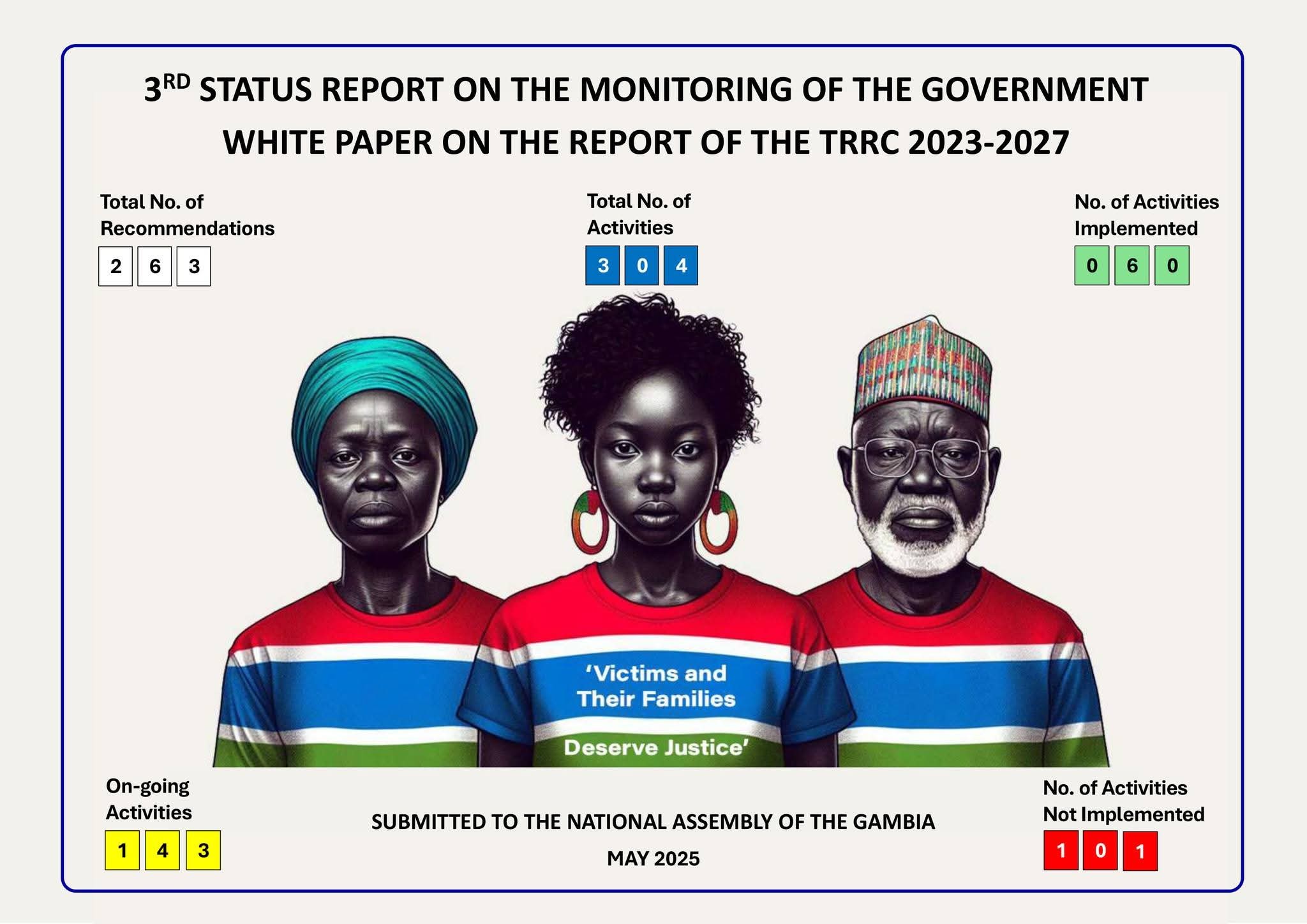Gambiaj.com – (BANJUL, The Gambia) – The National Human Rights Commission (NHRC) has released its Third Status Report on the monitoring of the Government’s White Paper on the Truth, Reconciliation, and Reparations Commission (TRRC) recommendations, covering May 2024 to May 2025. While acknowledging some notable achievements, the report underscores that the majority of planned activities remain incomplete or are yet to begin, casting doubt on the government’s ability to meet its own timelines.
According to the NHRC, of the 304 activities contained in the Implementation Plan, only 60 have been implemented, 143 are still ongoing, and 101 have yet to be initiated. This translates to a 20 percent implementation rate, with nearly one-third of activities not having started at all despite the government’s stated commitments.
The Commission’s findings highlight several areas where progress has been stalled. For instance, there is no evidence that certain individuals have been barred from holding public office as recommended by the TRRC, even though the Ban from Public Office Act has been enacted.
Similarly, judges and staff for the new judicial mechanisms—including the Special Prosecutor’s Office and the Special Criminal Division—have not yet been recruited or trained, leaving the newly created legal structures largely non-functional.
Critical recommendations remain untouched across several sensitive areas. None of the three recommendations related to the killing of Ousman Koro Ceesay have been fully implemented, while both recommendations concerning the presidential convoy remain outstanding.
The NHRC also reports that very little progress has been made on the ten activities aimed at addressing attacks on religious freedom, with only four in progress and six completely unimplemented. In the area of enforced disappearances, 13 out of 18 recommendations are still awaiting action.
Despite these shortcomings, the report acknowledges some key achievements. The government has enacted the Special Accountability (TRRC) Mechanism Act 2024 and the Special Prosecutor’s Office Act 2024.
The Reparations Commission has been operationalized, marking an important step toward compensating victims. In addition, a task force has been established under the Ministry of Justice to search for “unknown graves” of victims, while a joint technical committee with ECOWAS has been created to develop a hybrid judicial mechanism to prosecute human rights violations committed between 1994 and 2017.
The launch of a National Memorialization Framework Steering Committee to consult victims and design a memorialization strategy also represents progress.
However, the NHRC warns that inadequate financial allocations remain a major impediment to implementation.
It recommends that the Ministry of Finance and the National Assembly ensure sufficient funding for all implementing entities, that the Government expedite prosecutions by exploring domestic and international avenues, and that adequate resources be provided to fully operationalize the Reparations Commission.
It also urges the Ministry of Justice to communicate regularly with victims and the public to manage expectations.
This is the third status report since the government accepted almost all of the TRRC’s 265 recommendations in May 2022, appointing the NHRC as the independent monitoring body to report annually to the National Assembly.
The Commission says it will continue to track progress and present updates to lawmakers and the public but cautions that unless funding and staffing gaps are addressed urgently, the objectives of the White Paper risk remaining unrealized.










